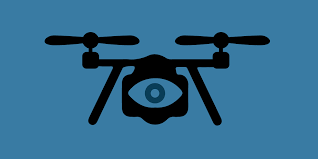Public safety vs. government surveillance
When confronted with competing moral panics, what do people prioritize?
High-tech tools [like Shot Spotter] can create a false justification for the broken status quo of policing and can end up exacerbating existing racial disparities. Johnathan Manes, MacArthur Justice Center, 2021.
When we talk about infringing on people’s rights, how much more of an invasion of privacy can you get than having bullets coming through your house? - Urbana NAACP President (Champaign County), Minnie Pearson, 2021.
The person who takes medicine must recover twice, once from the disease and once from the medicine. - Father of Modern Medicine, William Osler, MD, early-1900s.
I’m fascinated by debates over expanding law enforcement’s use of surveillance technologies like Automated License Plate Reader cameras, aerial drones, and Shot Spotter to prevent and investigate crime, especially gun violence. On the one hand, groups like the ACLU warn a frightened public that such cures may cause more harm than the disease itself, especially to racial minorities and marginalized communities, who are likely to experience the brunt of heightened surveillance and profiling. Additionally, academic researchers argue that ALPRs and Shot Spotter are “inaccurate, expensive, and dangerous,” because they generate too many false positives (i.e. alerting police to fireworks instead of gunshots) and don’t significantly reduce firearm homicides. On the other hand, millions of Americans use Ring doorbell cameras and participate in online neighborhood watch-style communities like Neighbors and NextDoor. Majorities support Shot Spotter and want ALPRs operating in their communities, too. (And they’re getting what they want, as more cities rapidly adopt such technology and pay for it using pandemic stimulus funds!)
Apparently, the present moral panic (or, as I like to call it, rational outrage) about crime and gun violence is more persuasive than efforts by groups like the ACLU and Marshal Project to whip up moral panic about the expansion of surveillance technology into our everyday lives. Why is this so? Is heightened crime and violence more salient to average citizens than elite discourse, even when such discourse is supported by empirical research? Are citizens who live in communities with high levels of gun violence naively submitting to increased surveillance, or do they simply believe that marginal improvements to public safety are worth the trade off? Is so much data already being collected about our movements and activities that none of this additional surveillance really matters to most people? We walk around with tracking devices in our pockets 24/7, live with Alexa at home recording our conversations, and permit Ring to monitor our online shopping and takeout deliveries. If more surveillance solves even a few more homicides, perhaps people are cool with it?
Here’s a sneak peak of something I’m working on that delves into these questions. I’m distributing a survey to 1000 Illinois residents. It asks people whether they would support or oppose their local police district using a hypothetical grant to purchase the following forms of surveillance technology: 1) CCTV; 2) Shot Spotter; 3) ALPRs; 4) Aerial surveillance drones; 5) Ring doorbell cameras, and 6) Facial Recognition Software. I hypothesize that people who live in places with more gun violence, who consider crime and violence among the major problems in their community, and who are at greatest risk of being victimized will be most likely to support all the aforementioned technologies, except facial recognition software, which I think will be almost universally unsupported. Why? Because that’s where I predict people will draw the line, except when it comes to storming the halls of Congress. If you participated in the capital riot, chances are the government found you using facial recognition software. Even the ACLU supports using facial recognition for this.
Stay tuned for: AI Eyes in the Sky and Ears to the Ground? Public Attitudes Toward Expanding Surveillance Technology to Reduce Gun Violence




I like your framing of this question and look forward to reading your results! One thing that stuck out to me though is the survey option “Ring doorbell camera”. I would indicate that I do not support that opinion for a number of reasons that I don’t think reflect what you’re trying to ask.
I wouldn’t support it because it it references a specific brand whereas I would want the police to consider a variety of brands. Also, I would interpret that as a subsidy for personal purchase of a device of the sort I’m generally opposed to. Finally, it’s not clear to me what benefit the camera itself would offer and how that would be associate to the finding allocated. is the funding just to subsidize personal purchase and the cops show up to ask for the footage if they believe it’d be useful in an investigation? Would maintenance of ring cameras purchased by this program be the responsibility of the home owner or government? Would the cops have direct access to the the cameras’ feed, or would they need to solicit it from the homeowner?
So, I’d vote against even though I believe that such cameras might be useful in solving a problem I care about.
Just food for thought. Look forward to future posts!
Love the Pearson quote. Contrast that with the UIUC prof who announced his opposition to these technologies on the basis of "taking the long view." History has shown that increased surveillance of minority populations will always be used against them, he argued. I don't want to dismiss these concerns, or general privacy concerns for the whole population, too lightly. But (putting aside the implication that nothing has improved or ever will improve WRT to minority rights) I have to wonder--should these technologies be more widely adopted, what exactly does he think is going to happen that could possibly be worse than young men dying in the streets at current rates? There are certainly going to be tradeoffs, but it would be nice if we could have a grounded, non-apocalyptic discussion about what those tradeoffs will actually be.